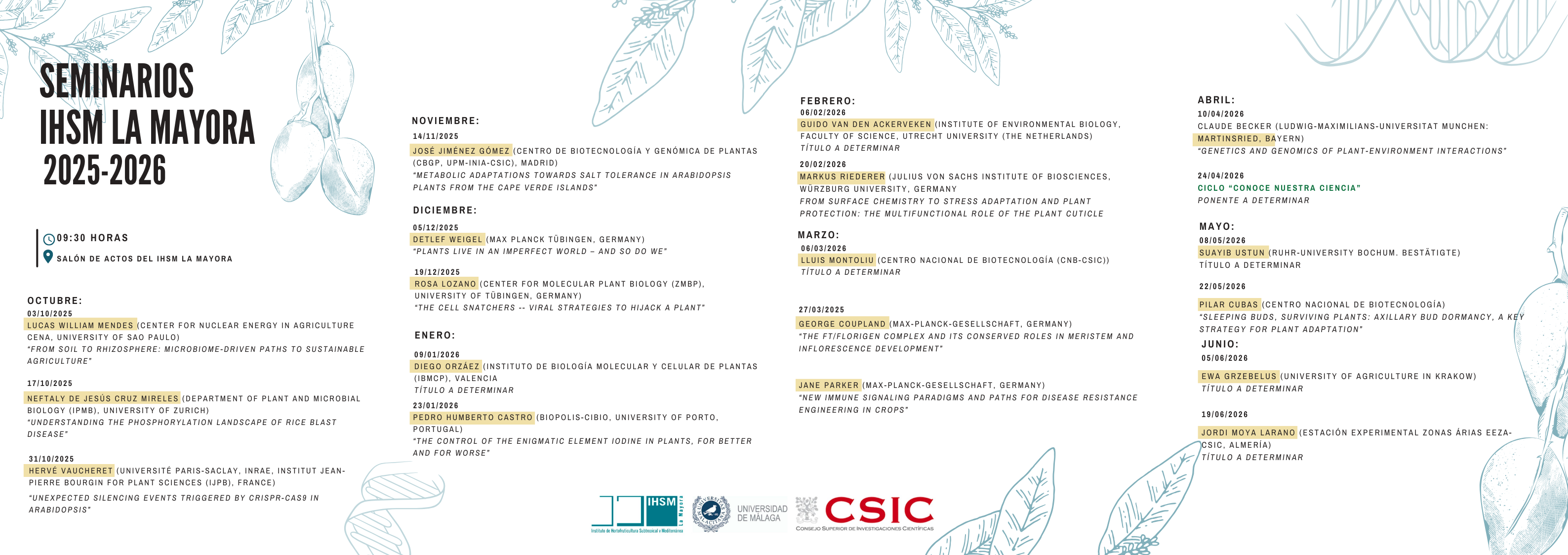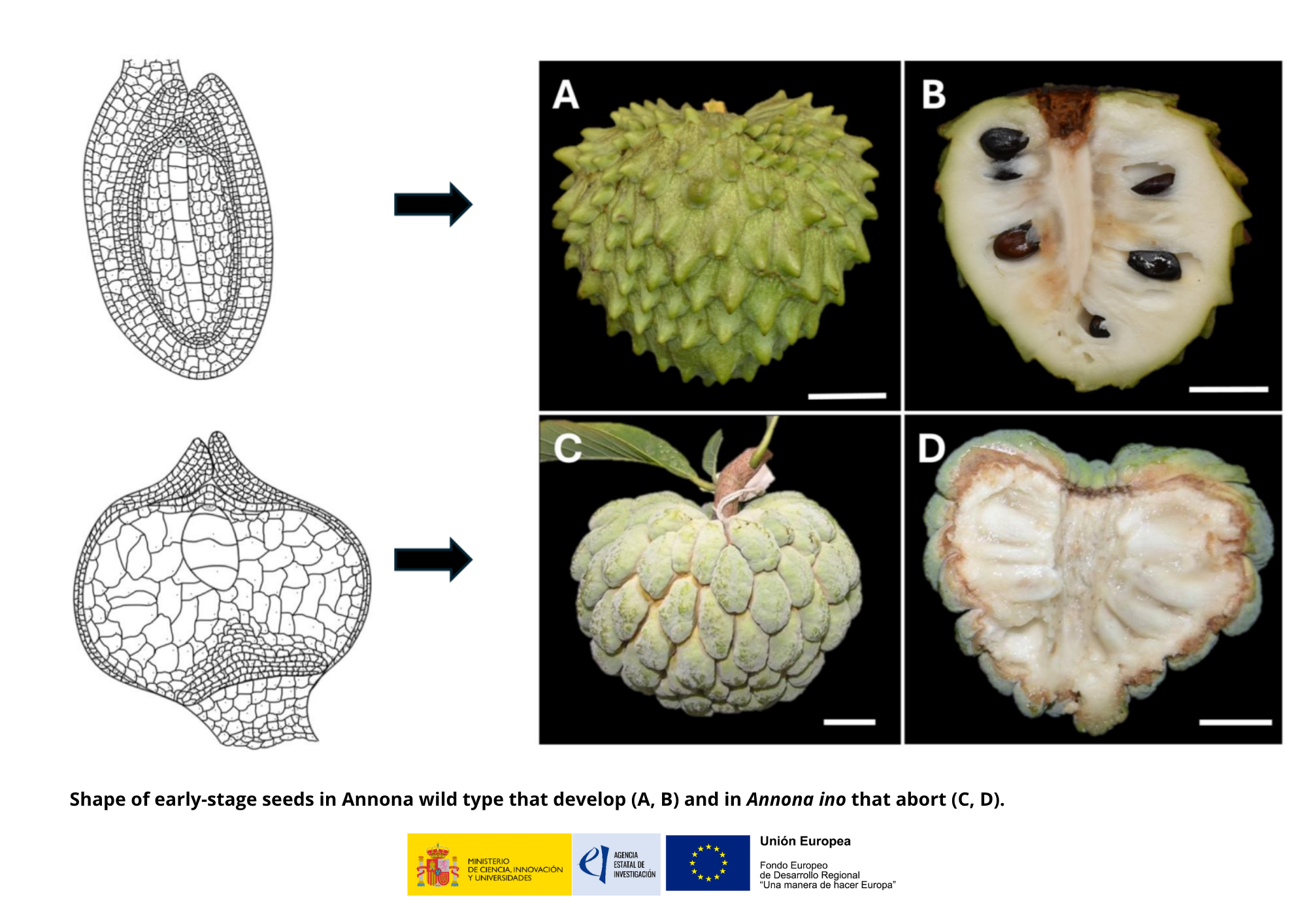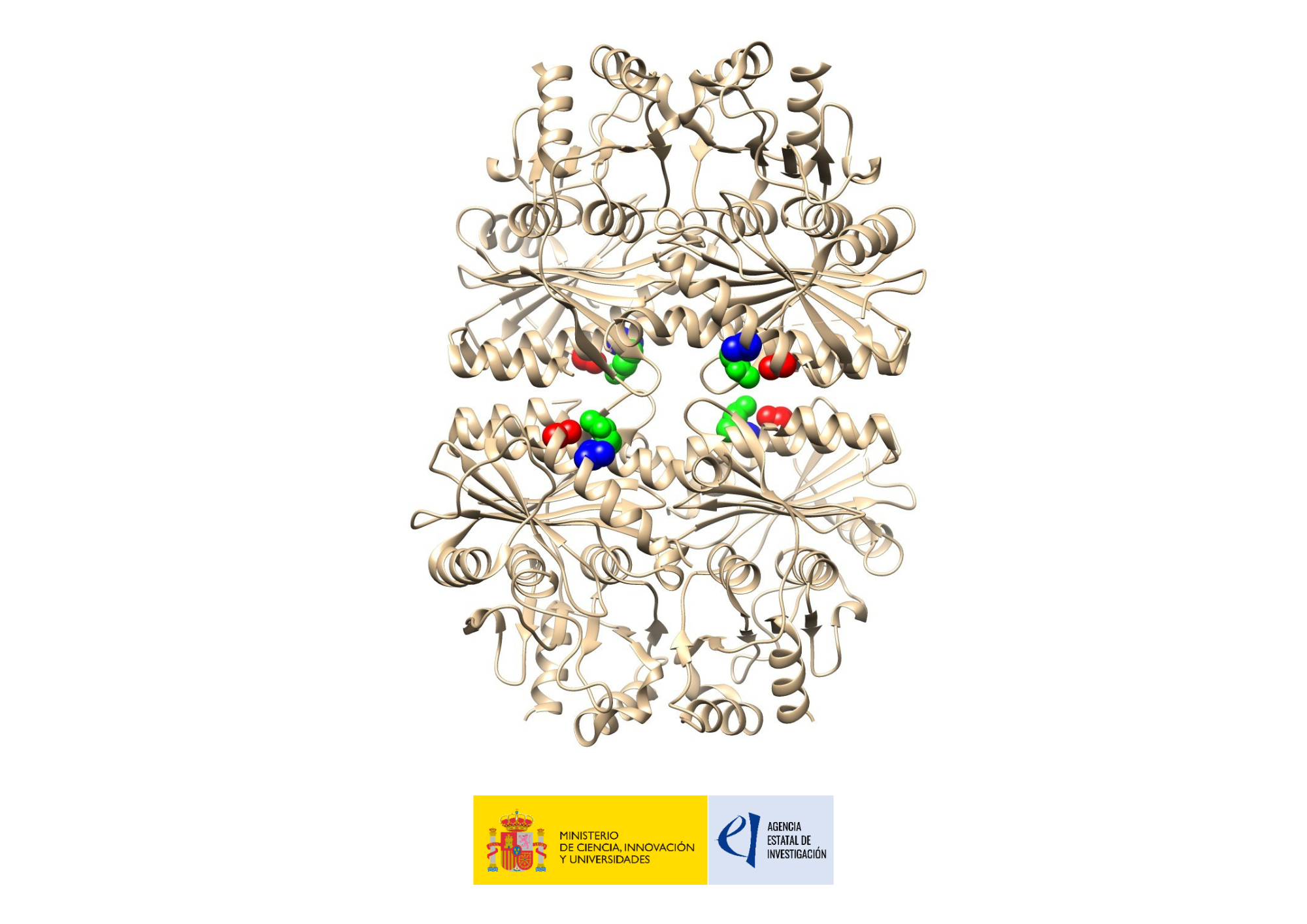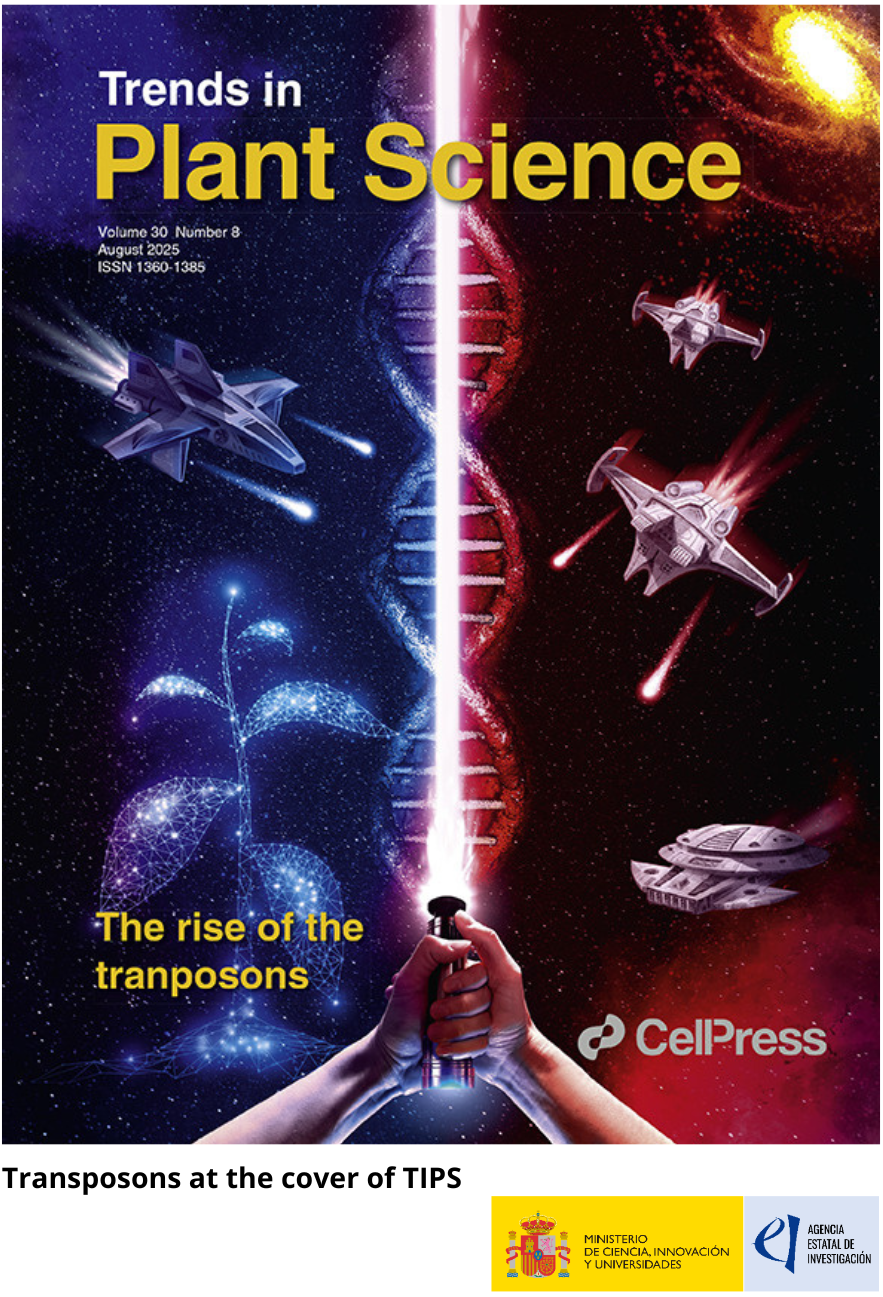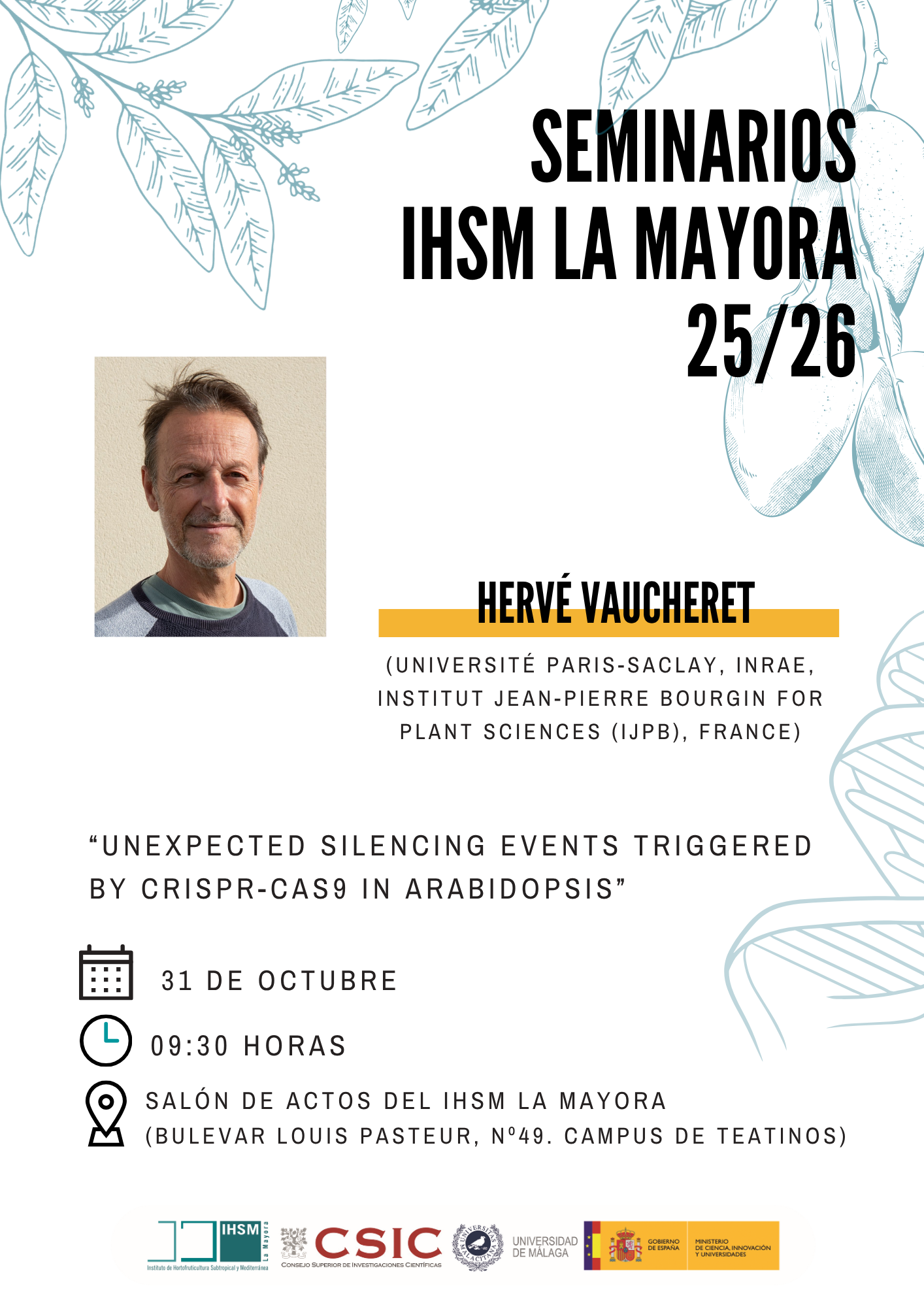
Seminarios IHSM La Mayora - Hervé Vaucheret (Université Paris-Saclay, INRAE. France)
In plants, invasive nucleic acids (e.g. transposable elements) are controlled by transcriptional and post-transcriptional gene silencing. These processes (referred to as TGS and PTGS) are mediated by 24-nt and 21/22nt- short interfering RNA (siRNA), respectively. Because the movement of transposable elements involve double-strand DNA breaks (DSBs), we investigated if DNA modifications mediated by the CRISPR-Cas9 system, which also involve DSBs, could also activate TGS and/or PTGS at the targeted sites. For this purpose, we used stably expressed reporter transgenes driven by various promoters as targets, and induced DSBs downstream the transgenes, up to several kbs. At most transgene loci tested, we observed that transgenes became silenced by TGS or PTGS upon CRISPR-Cas9-induced DSBs, even when DSBs were induced kbs downstream the target transgene. Similar results were observed when inducing DSBs downstream a couple of endogenous genes. CRISPR-induced PTGS was not inherited in siblings that have segregated the Cas9, whereas CRISPR-induced TGS was stable for at least 7 generations after Cas9 segregation, and correlated with stable DNA hyper-methylation of the transgene promoter. Of note, examples were found where DNA has been cut and perfectly repaired, indicating that these silencing effects are not due to mutations. These results shed light on unexpected silencing effects triggered by CRISPR-Cas9, which could jeopardize the interpretation of gene editing events. They also call for cautious analysis of the expression of genes adjacent to the targeted genes.

